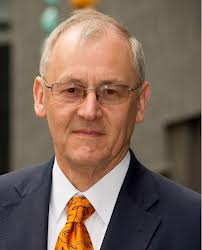This website uses cookies, including third party ones, to allow for analysis of how people use our website in order to improve your experience and our services. By continuing to use our website, you agree to the use of such cookies. Click here for more information on our and .
The effectiveness of Direct Action climate change policy as announced by the Coalition Government is a much debated topic. While the policy has kept the 5 % emission reduction target and the 20 per cent renewable energy target established by previous governments, Direct Action will abolish the price on carbon and associated organisations. The Abbott government has also committed to a $3 billion fund to pay businesses for emission reduction projects and will focus on conservation by establishing 15,000 people strong “Green Army”.
The emission reduction fund has recently come under scrutiny for not penalising companies who happen fail to implement their publicly funded emission reduction projects. David Green*, CEO at the Clean Energy Council answered our question about the main factors that led to the current state of Australian energy policy debate.
Question: What are some of the key factors that have contributed to the changing landscape of the Australian energy markets?
David Green:
- Drop in demand;
- Political debate about energy cost/investment;
- Impact of the internationalisation of Aus gas prices.
Question: You recently commented that “policy stability is needed to drive investment in major projects”- what particular projects should be targeted?
David Green:
- Improving the energy efficacy of the built environment;
- Clean energy;
- New gas infrastructure.
Question: The Million Solar Roofs Programs is one of the initiatives introduced by Minister Greg Hunt as part of the Direct Action Plan- how great an impact will this have on the environment?
David Green:
- Significant – depending on detailed roll-out and targeting.
Question: What are some of the key benefits of the Renewable Energy Target to Australia’s energy markets and the economy as a whole?
- Enhanced competition;
- Consumer engagement in driving change
 David was the founding Chief Executive of the UK Business Council for Sustainable Energy, which built on his work as Director of the Combined Heat and Power Association. He holds the Award for Outstanding Contribution to Sustainable Energy made by the UK Parliamentary Renewable and Sustainable Energy Group. In his native UK, he Co-founded the UK national charity Neighbourhood Energy Action that has, since 1981, secured warmer homes for many millions of lower income households. David has also worked as advisor to the Victorian State Government as well as the US Department of Energy and various institutions of the European Union.
David was the founding Chief Executive of the UK Business Council for Sustainable Energy, which built on his work as Director of the Combined Heat and Power Association. He holds the Award for Outstanding Contribution to Sustainable Energy made by the UK Parliamentary Renewable and Sustainable Energy Group. In his native UK, he Co-founded the UK national charity Neighbourhood Energy Action that has, since 1981, secured warmer homes for many millions of lower income households. David has also worked as advisor to the Victorian State Government as well as the US Department of Energy and various institutions of the European Union.
David will be presenting at the Direct Action 2014 conference, to be held on the 3– 4 March in Sydney. His talk will address the impact of Direct Action on energy policies in Australia. Visit the Direct Action website for more information about the speaker line-up and to register.

